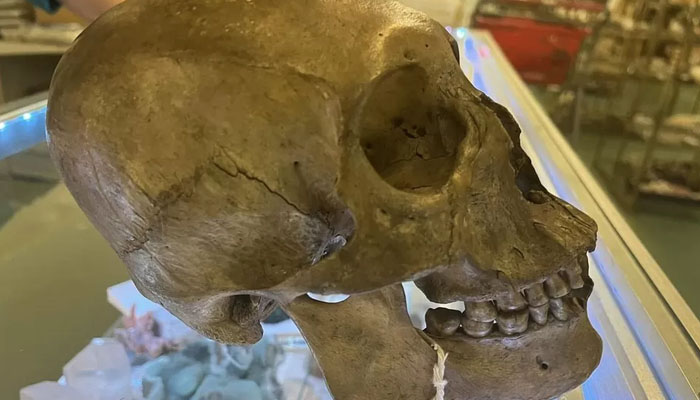Human skull in North Fort Myers shop creeps out Lee County customers
Lee County Sheriff's Office made light of the discovery of skull in North Fort Myers shop on social media, describing it as a "twist of not-so-humerus events"
Shopping in Florida's North Fort Myers town in Lee Country took an unsettling turn when a human skull was found in a charity shop's Halloween area startling a customer as they were taking a stroll along the aisle.
Authorities stated that an astute anthropologist who was perusing the store on Saturday noticed the skull and surmised that it belonged to a human.
After visiting the business, detectives concluded that it was most likely human.
The proprietor of the business informed authorities that the skull had been bought some years prior and had been kept in a storage container.
The local medical examiner and police in North Fort Myers, which is about 160 miles (260 km) northwest of Miami, are currently looking into the find and will be examining the skull in more detail.
The case is not suspicious in the eyes of the authorities.
The Lee County Sheriff's Office dismissed the finding as a "twist of not-so-humerus events" on social media.
In the state of Florida, "no person shall knowingly offer to purchase or sell ... any human organ or tissue for valuable consideration". The eyes, corneas, kidneys, livers, hearts, lungs, pancreas, bones, and skin are all covered by the act.
A human skull discovered in a donation box at a Goodwill charity shop in Arizona was the subject of a similar discovery in September.
Despite being human, experts claimed the skull was most likely old and unrelated to any crimes.
Although the startling discoveries made in Arizona and Florida may seem unsettling, anthropologists have been fascinated by the skulls that researchers have found, which provide insight into the development of humans.
In Ethiopia, Africa, scientists found a virtually intact 3.8 million-year-old cranium in 2019.
The skull came from a species that gave rise to the earliest early humans, hence its discovery was noteworthy.
-
Teacher arrested after confessing to cocaine use during classes
-
Milo Ventimiglia recalls first meeting with Arielle Kebbel on the sets of 'Gilmore Girls' amid new project
-
Leading astrophysicist shot dead at southern California home
-
Will Savannah Guthrie ever return to 'Today' show? Here's what insiders predict
-
Amazon can be sued over sodium nitrite suicide cases, US court rules
-
Patrick Dempsey reveals Eric Dane's condition in final days before death
-
Epstein estate to pay $35M to victims in major class action settlement
-
South Korea’s ex-President Yoon issues public apology after being sentenced to life over martial law












